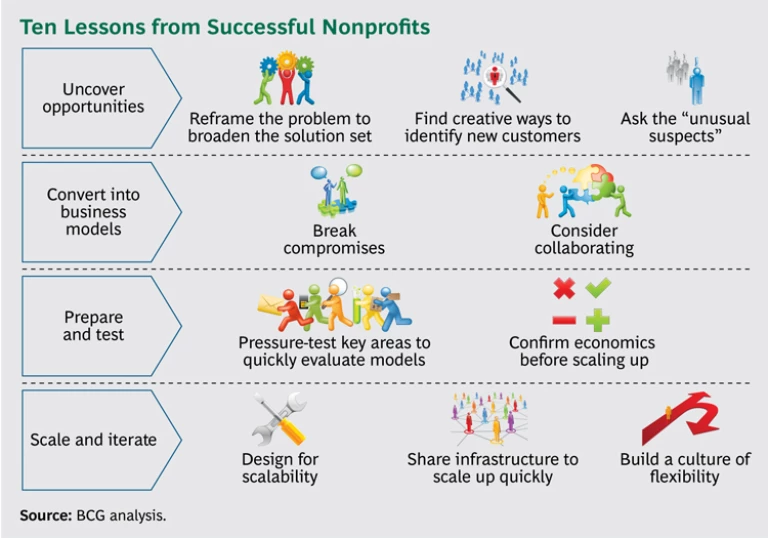What keeps business leaders up at night? If it’s not their company’s ability to streamline operations and lower costs, it’s whether their teams have the vision to see future opportunities and the flexibility to pursue those opportunities faster and more profitably than competitors.
Companies aim to improve their performance every day, but in many cases, doing business a little better is not enough. Bold, game-changing moves are risky, however, so many companies wait until their backs are against the wall before they start rethinking their business models. But by then, they may lack the cash flow, capabilities, and customer goodwill to turn things around or optimize the value of a growth opportunity.
The good news is that business model innovation (BMI) is a capability that can be developed. BMI involves changing multiple components of a business with the goal of redefining how it operates or delivers value. (See “Value Proposition + Operating Model = Business Model.”) In many cases, looking beyond one’s own sector can provide new insights and inspiration. Private-sector companies can learn much from the social sector because nonprofits frequently need to reinvent themselves in the face of significant challenges and constraints.
Value Proposition + Operating Model = Business Model
In essence, a business model describes how a company operates and delivers its value proposition to its customers. Reinventing that business model can help companies raise the value bar in intensely competitive markets or respond to regulatory or technological shifts that demand fundamentally new ways of operating. BMI can also help businesses compete more effectively in economic downturns by allowing them to lower prices and win share, for instance, or aggressively compete in game-changing ways.
Business models have six components. (See the exhibit “What Is a Business Model?”) The first three—the company’s product or service offering, the market segments the company is targeting, and how the company will make money—are the company’s overall value proposition. The other three components—the company’s value chain, cost model, and organization—relate to the assets and activities the company will own, which it will rent or outsource, and how the company will be organized. These decisions reflect the company’s operating model. BMI involves changing multiple components simultaneously in a coordinated manner, with the goal of delivering a superior value proposition that redefines the company’s basis of competition.
The challenges that nonprofits tackle can be enormous. Whether they are striving to eradicate malaria, end hunger, or eliminate the inner-city achievement gap, the best nonprofits continually rethink how they pursue their missions and achieve impact. Necessity is the mother of reinvention.
Successful business-model innovators typically progress through four stages: uncover opportunities, convert ideas into business models, prepare and test the models, and scale and iterate. Nonprofits, despite the fact that they focus on “program models” rather than business models, follow a similar path. On the basis of extensive work with the social sector, The Boston Consulting Group has distilled ten lessons that span the four stages of BMI. (See the exhibit “Ten Lessons from Successful Nonprofits.”) In all of the examples that follow, nonprofits reinvented their program models in fundamental ways. We’ll focus on specific elements of these reinventions to illustrate key lessons for companies in the private sector.










